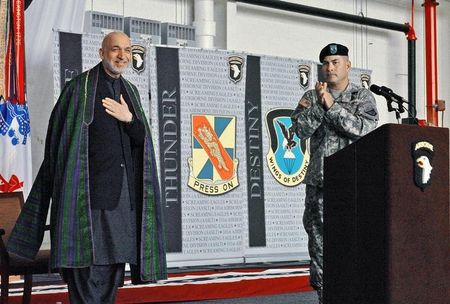By David Alexander
WASHINGTON (Reuters) - Afghan military casualties have spiked in recent weeks amid an increase in Taliban attacks, but the top U.S. commander in the country said on Thursday that rebel gains were fleeting and he was confident Afghan forces could stop them from holding ground.
"The last couple of weeks, there has been an uptick (in casualties), with the Taliban trying to make a statement as they close out the fighting season," U.S. Army General John Campbell, the commander of international forces, told a Pentagon briefing.
Campbell, the head of the International Security Assistance Force, did not have an exact tally of Afghan casualties for this year, but said it was in the range of 7,000 to 9,000 killed or wounded. He said the number was slightly higher than in 2013 because of the recent spike in combat in Helmand and elsewhere.
The ISAF chief downplayed the significance of the surge in attacks.
"There's nowhere that we have Afghan security forces that the Taliban can get the terrain and hold the terrain," he told reporters.
"The Taliban may take over a district centre or something, but only temporarily. Once the ANSF (Afghan National Security Force) understands that piece of it ... they get the terrain back."
Campbell's remarks via teleconference from Afghanistan came just two days after Afghan and U.S. officials signed a bilateral security agreement that would keep up to 9,800 U.S. troops in the country after the end of the year to advise and support Afghan security forces and carry out counter-terror operations.
Final approval of the accord came after months of delay because then-Afghan President Hamid Karzai refused to sign the deal. The agreement had to await the conclusion of contested presidential elections, which were only recently finalised.
Campbell, who took over as ISAF commander in August, said his six weeks in Afghanistan had been characterized by "one word ... transition, transition, transition."
International forces are in the process of drawing down from about 40,000 currently to 12,500 by the end of the year. Of that number, the U.S. military has 24,050 troops in Afghanistan and is drawing down to 9,800.
"We're on a very good glide path to make that by the end of December," Campbell said.
He said since he last served in Afghanistan in 2011, the presence of coalition forces has consolidated from 300 command outposts and forward operating bases countrywide to just under 30.
Campbell said the international mission after the end of the year would be "fundamentally different," with coalition forces providing advice and assistance at the level of a military corps or government ministry. Previously, troops were with smaller units, down to the battalion level.
"We're not out on patrol with the Afghans. They've taken over the fight," he said.

Instead, international troops will be helping Afghan forces develop higher-level capabilities, such as logistics, gathering and using intelligence, improving the aviation wing and learning to provide close-air support for ground troops, Campbell added.
(Reporting by David Alexander. Editing by Andre Grenon)
